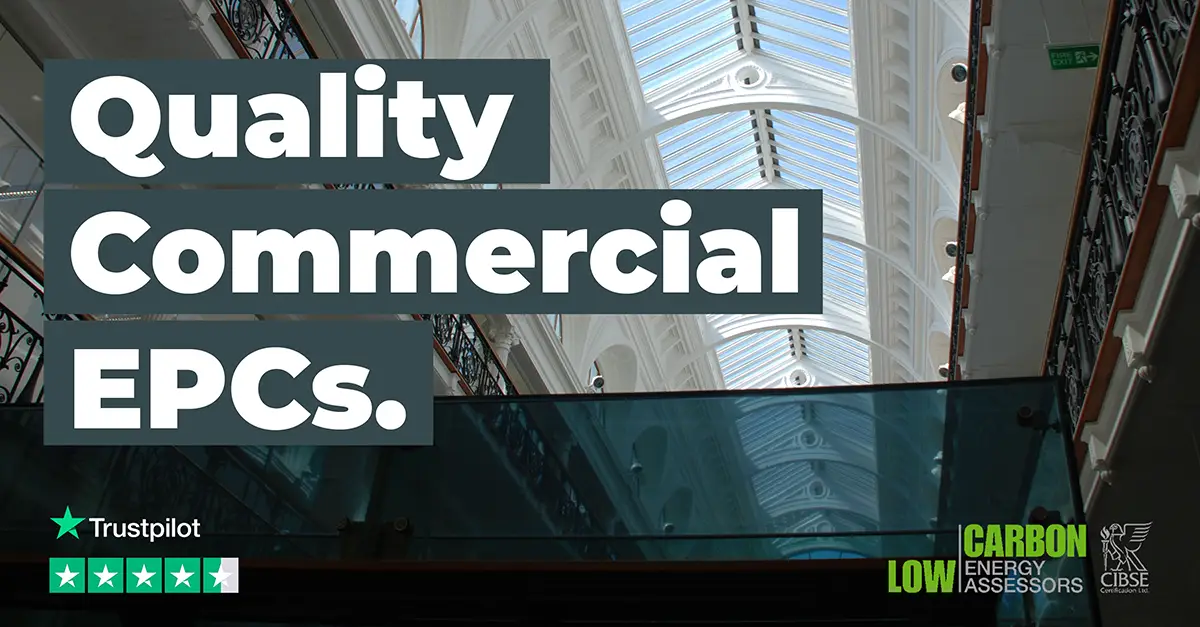Energy efficiency is no longer a luxury but a necessity in today’s real estate landscape. As governments around the world intensify their efforts to combat climate change, energy regulations such as Energy Performance Certificates (EPCs) and Minimum Energy Efficiency Standards (MEES) have come to the forefront of UK property law. These regulations not only impact property owners and landlords but also influence tenants, investors, and real estate professionals across the spectrum. In the UK, EPC and MEES regulations are essential to achieving national net-zero targets and ensuring energy-efficient building stock.
This article explores what EPCs are, how MEES regulations impact commercial and residential properties, the key deadlines to be aware of, and the main exemptions available to property owners.

EPC for Commercial Property
An Energy Performance Certificate (EPC) for commercial properties is a legal requirement whenever a building is constructed, sold, or rented. It provides a rating of a building’s energy efficiency from A (most efficient) to G (least efficient), along with recommendations for improvements. EPCs are valid for 10 years.
From April 2018, MEES regulations made it unlawful for landlords to grant new leases (or renew existing ones) on commercial properties with an EPC rating below E unless an exemption is registered. As of April 2023, this requirement extended to all commercial leases, including those signed prior to 2018.
Looking ahead, the UK government has proposed tightening these requirements further:
-
By 2025: All non-domestic rented buildings must have an EPC rating of C or above for new leases.
-
By 2027: All rented commercial properties must meet EPC C or higher.
-
By 2030: EPC B rating will become mandatory for all commercial rentals.
EPC for Residential Properties
Residential landlords are equally bound by EPC and MEES requirements. Since April 2018, it has been unlawful to let or renew a tenancy for a residential property with an EPC rating below E, unless a valid exemption exists.
From April 2020, the MEES regulations extended to all existing residential tenancies, even those agreed before 2018.
The government has consulted on further tightening these standards, with proposals that:
-
From 2025, newly rented homes must have an EPC rating of C or above.
-
From 2028, all existing rented homes must meet the same standard.
These proposed changes are part of the broader UK strategy to make housing more energy efficient, reduce energy bills for tenants, and cut carbon emissions across the sector.

EPC Compliance Timelines: Commercial vs Residential
| Year | Commercial EPC Requirement | Residential EPC Requirement |
|---|---|---|
| 2018 | EPC E for new leases | EPC E for new/renewed tenancies |
| 2020 | – | EPC E for all existing tenancies |
| 2023 | EPC E for all commercial leases | – |
| 2025 | EPC C for new commercial leases (proposed) | EPC C for new tenancies (proposed) |
| 2027 | EPC C for all commercial leases (proposed) | – |
| 2028 | – | EPC C for all tenancies (proposed) |
| 2030 | EPC B for all commercial leases (proposed) | – |

Exemptions to EPC and MEES Compliance
While the regulations are strict, there are circumstances under which property owners can claim an exemption. These exemptions must be registered on the PRS (Private Rented Sector) Exemptions Register and are valid for five years, after which they must be reassessed.
Issues with Consent
If a landlord is unable to make necessary energy efficiency improvements because required consents cannot be obtained (e.g., from a tenant, mortgage lender, or local authority), an exemption may be granted. Landlords must demonstrate that they have taken reasonable steps to obtain these consents but were unsuccessful.
Issues with Devaluation
If carrying out the required improvements would result in a devaluation of the property by more than 5%, the landlord can claim an exemption. This must be supported by a report from an independent surveyor confirming the financial impact of the proposed changes.
Short-Term Letting Exceptions
Short-term lets, such as holiday rentals that are not let on assured shorthold tenancies (ASTs), may be exempt from MEES regulations. However, care must be taken to ensure that the property does not fall into the MEES framework through extended or repeated occupancy.
Solid Wall Insulation
In some properties, particularly older or heritage buildings, installing solid wall insulation may not be technically feasible or may adversely affect the building’s character or structural integrity. In such cases, an exemption may be granted if it’s shown that the work would not be cost-effective or would damage the fabric of the building.

EPC and MEES regulations are reshaping the property landscape in the UK. As deadlines tighten and energy standards rise, it is essential for landlords and property owners to remain informed and proactive. Whether through upgrading building fabric, installing new technologies, or applying for valid exemptions, compliance is not just a legal necessity but a strategic move toward future-proofing property assets.
By understanding the regulations, deadlines, and available exemptions, stakeholders can navigate the evolving terrain of energy efficiency with confidence. Arrange a chat with SEA Consulting to discuss your commercial EPC or MEES regulations today!

